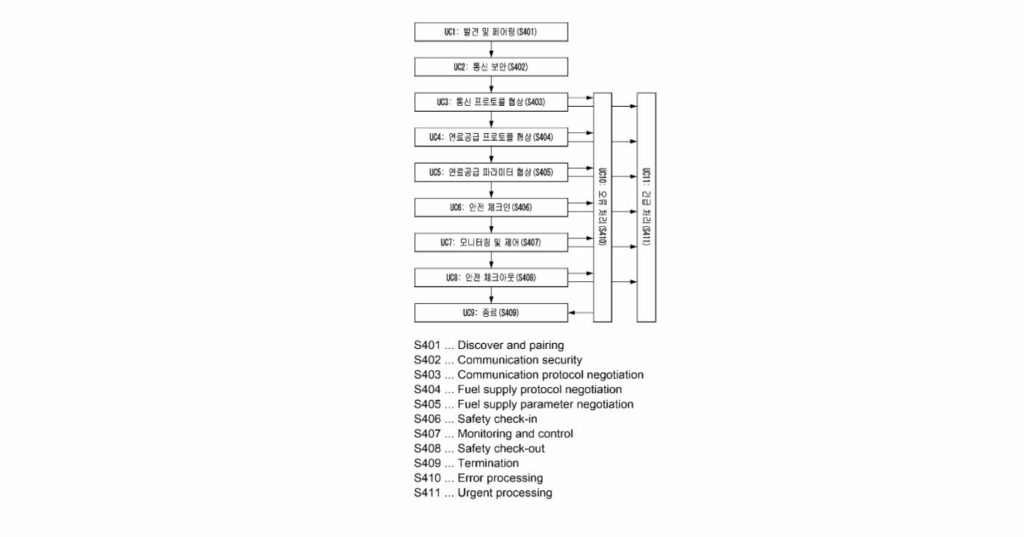Innovation is at the heart of progress, especially in the automotive industry, where sustainability and efficiency are paramount. Hyundai Motor Company has recently filed a patent for a groundbreaking method for controlling fuel supply in hydrogen vehicles. This development is poised to revolutionize the way we approach hydrogen fuel technologies.
Fuel Supply Protocol
Central to Hyundai’s patent is the concept of a fuel supply protocol. This protocol results from a negotiation process between a hydrogen fuel dispenser and the mobility unit, essentially the vehicle. The protocol determines how fuel is dispensed, focusing on two major actions: starting and suspending fuel supply.
The Request Message
Once the protocol is established, the vehicle (called ‘the mobility’) sends a request message to the fuel dispenser. This request message contains crucial information about the action it wishes to perform — either starting or suspending the hydrogen fuel supply. The specificity of the request ensures that the dispenser knows exactly what the vehicle requires, fostering efficiency.
The Response Message
Upon receiving the request message, the dispenser sends back a response message. This response contains information about whether the actions requested by the vehicle can be processed or if the dispenser is prepared to process those actions. This two-way communication ensures that the fuel supply process is reliable and safe.
Benefits of the Invention
The invention holds several benefits. Firstly, it enhances the communication between hydrogen vehicles and dispensers, leading to smoother and more efficient fuel supply processes. Secondly, it lays the groundwork for safer operations, as clear request and response messages mitigate the risk of errors in fuel dispensing. Lastly, it showcases a step forward in commercializing hydrogen fuel technologies, contributing to a greener environment by supporting cleaner energy alternatives.
Hyundai’s patent for controlling fuel supply in hydrogen vehicles marks a significant milestone in automotive innovation. It represents a thoughtful approach to modern fuel technology that prioritizes communication, efficiency, and safety. As the industry continues to evolve, such advancements will undoubtedly play a crucial role in shaping a sustainable future.





